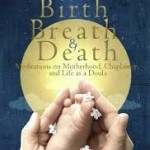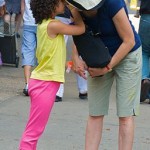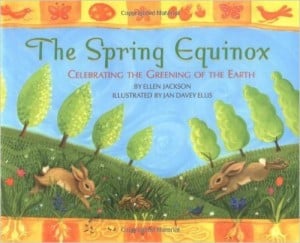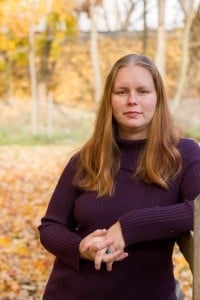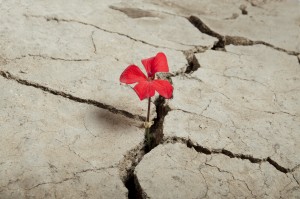
Trigger warning: this is a discussion of miscarriage, and I include some intense emotions and strong imagery. Please be cautious if this is a triggering subject for you.
Last week was the fifth anniversary of my first miscarriage. I remember this horrible moment throughout the year – the day I found out I was pregnant, the day my baby was supposed to have been born – but none stands out more than this day. I was three months pregnant, supposedly beyond the danger zone, but I had been bleeding for the past week. At first only a little, barely enough to notice. I walked into the kitchen that morning to get my oldest daughter a banana, barely awake and barely aware of the worries that had been plaguing my mind. I cracked the yellow skin and handed her the fruit to peel, when I felt something move inside of me. It felt wrong. I knew immediately that something was not right, and I yelled for my boyfriend and retreated to the shower to try to relax.
I remember crouching there in the falling water, crying without really knowing why, while bright red blood filled my vision. I’d never seen so much blood in my life. I still dream about it – scarlet on the white porcelain of the bathtub, swirling about my feet and down the drain. My daughter was crying, lonely and afraid, but it sounded so distant in my ears. Eventually my boyfriend must have gotten up and gone to her, but I don’t think that I noticed.
At some point he came to me, got me dressed and out the door to the hospital. I was taken to the maternity ward, where a sweet lullaby played when a baby was born – I remembered hearing that on our hospital tour. That lullaby is burned into my memory, a melancholy thing that lurks always in the back of my mind this time of year.
Five months later, I found out I was pregnant again; and five months after that, I lost a baby for the second time.
For months, I felt as if I was some kind of zombie. Metaphorically, I was only going through the motions of life; almost nothing held any meaning for me at that point. I felt it was true in a physical sense as well – I had trouble eating, drinking, and sleeping, all standard indicators of a living thing. I thought that perhaps my womb, that most important carrier of life, was instead a barren desert in the dead world of my body. I was so angry at the Gods, at the universe, at anything that I could shout at that wouldn’t shout back. It just didn’t seem fair. I’ll be honest – it still doesn’t seem fair. It was as if all my hopes and dreams were dying as well, washed down the drain along with all that blood.
Over the next months and years, I tried as best as I could to push that pain from my mind and get on with life; but I had no context for dealing with this pain. No one I knew wanted to talk about something as terrible as losing a child. My friends all seemed to be pregnant or having babies – I skipped the wedding of a very dear friend because I didn’t think I could stand to see a happy pregnant woman. My family tends to sweep pain under the rug rather than confront it, and my attempts to express my pain were shut down quickly. I cried almost every day for years.
When I first started exploring Heathenry, one idea that drew me deeply was the Disir, ancestral mothers who guarded the family. They were warriors who protected their sons, comforting presences for their daughters in labor and motherhood, and guardians who cared for children who died. The concept enthralled me. It was possible that these dear children of mine, whom I thought about daily, whose graves I visited every Samhain and every other day that I associated with them, were not alone. They were held, they were cared for, they were loved by my great-grandmothers, my great-great-grandmothers, and back and back and back. It was so intensely comforting to think that perhaps I hadn’t failed these children by being unable to mother them – though it was awful that they died, they were still loved and comforted and protected.
Every morning, I leave an offering to my ancestors. I don’t think of the children I lost every day now. The pain has faded, and likely will continue to fade – I have birthed two more children since then, have left behind the idea of my body as a dead shell. The children that stayed with me grow and thrive and continue to be so vibrantly alive. But a few times during the year – these moments that mark their deaths, the moments that mark the lives that could have been – I have a special ritual dedicated to the children I lost and all their mothers, my ancestors, who watch over them. I’ll be posting this ritual next week as Children Who Rest with My Ancestors: Part 2.


